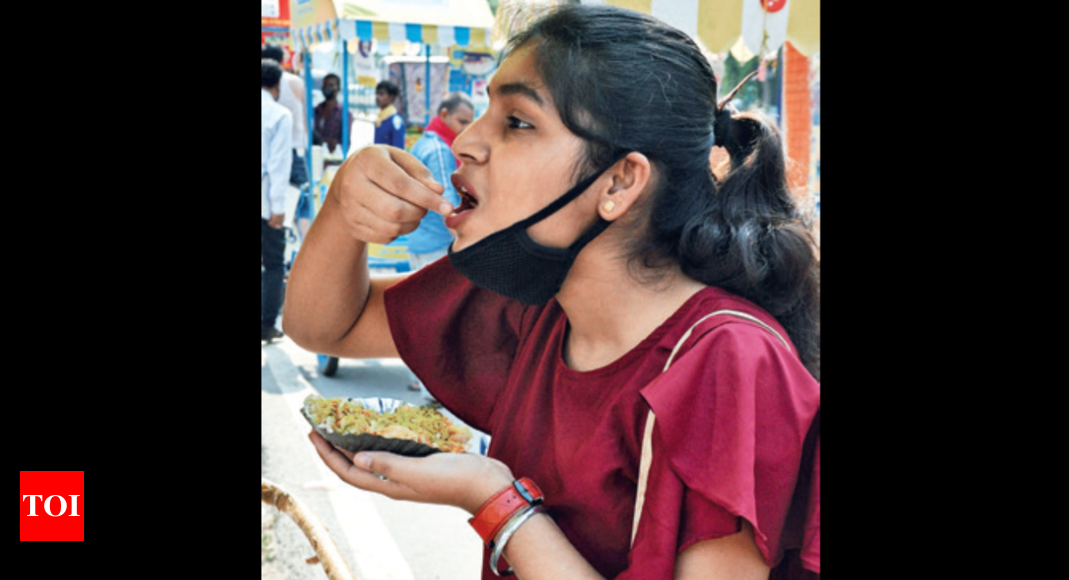


In a tragic incident, a 31-year-old woman from Hyderabad passed away after consuming momos purchased from six individuals running food stalls in the city's Chintal Basti area. The accused, all natives of Bihar, have been arrested on charges of culpable homicide not amounting to murder. The Telangana government, in response to this incident, has banned the production, sale, and storage of mayonnaise made from raw eggs across the state for one year.
Food Poisoning Outbreak Linked to Jalebi and Mayonnaise Consumption Raises Concerns
In a recent incident that has raised concerns about food safety, several individuals have fallen ill after consuming jalebi and mayonnaise in different parts of India.
Jalebi Poisoning in Bihar
In Arrah, Bihar, over 100 people, including children, were hospitalized after consuming jalebi purchased from local street vendors. The victims complained of symptoms such as vomiting, diarrhea, and abdominal pain. Investigations revealed that the jalebi was contaminated with a harmful bacteria, leading to an outbreak of food poisoning.
Momo Poisoning in Hyderabad
In a tragic incident in Hyderabad, a 31-year-old woman passed away after eating momos purchased from food stalls in the city's Chintal Basti area. The accused, six individuals from Bihar, were arrested and charged with culpable homicide not amounting to murder. The investigation found that the momos were contaminated with mayonnaise made from raw eggs, which caused food poisoning.
Telangana Government Ban on Raw Egg Mayonnaise
In response to the Hyderabad incident, the Telangana government has issued a one-year ban on the production, sale, and storage of mayonnaise made from raw eggs across the state. The government has also ordered food safety officials to inspect food establishments and enforce strict hygiene standards.
Top 5 FAQs and Answers
1. What is food poisoning?
Food poisoning is a condition that occurs when harmful bacteria, viruses, or parasites contaminate food. Symptoms can include nausea, vomiting, diarrhea, and abdominal pain.
2. How can I prevent food poisoning?
Wash hands properly before handling food, cook food thoroughly, avoid eating raw or undercooked eggs, and store food at appropriate temperatures.
3. What are the most common causes of food poisoning?
Common causes include bacteria such as Salmonella, E. coli, and Staphylococcus aureus, as well as viruses like norovirus.
4. What should I do if I think I have food poisoning?
Seek medical attention immediately. Stay hydrated by drinking plenty of fluids, and avoid eating until symptoms subside.
5. What are the long-term effects of food poisoning?
In severe cases, food poisoning can lead to dehydration, sepsis, organ failure, and even death. It can also cause long-term health problems such as irritable bowel syndrome (IBS).
Conclusion
The recent outbreaks of food poisoning in India highlight the importance of food safety and the need for consumers to be vigilant about the food they eat. By following proper food handling practices and being aware of the risks, individuals can help prevent the spread of foodborne illnesses.

A school teacher and YouTuber from Nagpur, Rohit Arya, led a daring protest against the Maharashtra government for withholding his funds. In a shocking turn of events, he allegedly kidnapped 17 children and two others, and held them hostage inside a studio in Powai for six days. After failed negotiations, police forcefully entered the studio and rescued the children, while Arya was shot and later declared dead. In a video released before the children were rescued, Arya claimed he simply wanted to speak to certain people and had "moral demands" without specifying what they were.

Vice President J D Vance and Second Lady Usha Vance traveled to Camp Pendleton to attend a ceremony commemorating the 250th anniversary of the United States Marine Corps. The event serves as a reminder of the Marine Corps' long-standing role in American defense and global security, as well as honoring the sacrifices made by past and present Marines. This visit demonstrates the Trump administration's efforts to strengthen ties with the armed forces, with a particular focus on the highly respected Marine Corps.

Erika Kirk, wife of the late Turning Point USA founder Charlie Kirk, has started her campus tour at the University of Mississippi with Vice President JD Vance. They spoke at the "This Is the Turning Point" event, where Kirk shared her husband's message of reclaiming territory and standing up for truth in the face of tragedy. Vance also addressed hot-button issues such as immigration and the government shutdown, reiterating his role as vice president to prioritize the interests of the United States.

Delhi Minister Kapil Mishra spearheaded a high-level meeting to discuss the establishment of a new Gaushala in Ghumanheda village. The government's goal is to relocate stray cattle from urban streets while ensuring their well-being and sustainability through suggestions from NGOs and private organizations. This move marks a step towards animal welfare and environmental protection without financial assistance from the government.

After six years of imprisonment, Asaram Bapu has been granted interim bail on medical grounds due to his deteriorating health. The controversial self-proclaimed godman was arrested in 2013 for allegedly raping a schoolgirl and is now undergoing treatment at a private hospital. The decision was made by the Rajasthan High Court, with the Division Bench led by Acting Chief Justice Sanjeev Prakash Sharma. This comes after the Supreme Court had previously granted Asaram interim bail till the end of March for the same reason.

During a public meeting in Bihar, Union Home Minister Amit Shah dismissed any speculation about leadership changes by firmly stating that there is "no seat vacant" in politics. Praising Chief Minister Nitish Kumar and Prime Minister Narendra Modi, Shah urged the people of Bihar to vote for the NDA in the upcoming assembly elections. He also addressed various issues such as the construction of the Ram Temple and the ban on PFI, while emphasizing the NDA's strong leadership in the state.

Union Home Minister Amit Shah expressed his confidence that the BJP will emerge victorious in the upcoming assembly elections in West Bengal. He also criticized Chief Minister Mamata Banerjee and the ruling TMC for their opposition towards the special revision exercise for the voter list. The minister defended the legitimacy of the process and supported the Election Commission, while the opposition claims it is a ploy to manipulate voter lists before the polls.

Union Home Minister Amit Shah criticised the opposition's manifesto promise of providing government jobs in Bihar if they come into power. Calling it "nonsensical", Shah stated that such a promise is absurd and the opposition knows they will never come to power and will not have to fulfil any promises made. He also pointed out that the opposition's manifesto ignores the development strides made in Bihar, such as electricity and clean water reaching every village.

In an exclusive interview with News18 India, Union Home Minister Amit Shah dismissed Rahul Gandhi's allegations of "vote chori" (vote theft) and assured the people of Bihar that the BJP will take action against every single infiltrator in the country. He also addressed concerns about Nitish Kumar's health and stated that the Bihar CM was holding four rallies a day, proving that there was no question of his health being in poor shape. Additionally, Shah criticized the opposition's attempt to create a negative perception about Nitish Kumar.

In a recent interview with News18 India's "Sabse Bada Dangal Bihar 2025", Union Home Minister Amit Shah confidently stated that the NDA will form a government with an unprecedented two-thirds majority in the upcoming Bihar assembly elections. Shah also vehemently denied any concerns raised by the opposition regarding the health of Chief Minister Nitish Kumar, stating that both he and Kumar are holding four rallies a day. This marks a major shift in the political equation in Bihar, as the BJP and JD(U) are contesting an equal number of seats, a first in the state's electoral history.